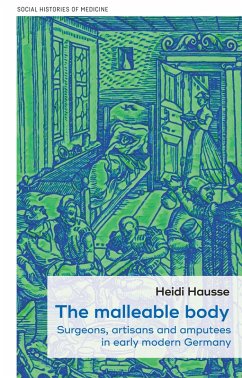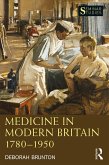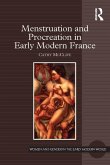This book uses amputation and prostheses to tell a new story about medicine and embodied knowledge-making in early modern Europe. It draws on the writings of craft surgeons and learned physicians to follow the heated debates that arose from changing practices of removing limbs, uncovering tense moments in which decisions to operate were made. Importantly, it teases out surgeons' ideas about the body embedded in their technical instructions. This unique study also explores the material culture of mechanical hands that amputees commissioned locksmiths, clockmakers, and other artisans to create, revealing their roles in developing a new prosthetic technology. Over two centuries of surgical and artisanal interventions emerged a growing perception, fundamental to biomedicine today, that humans could alter the body - that it was malleable.
Dieser Download kann aus rechtlichen Gründen nur mit Rechnungsadresse in A, D ausgeliefert werden.









